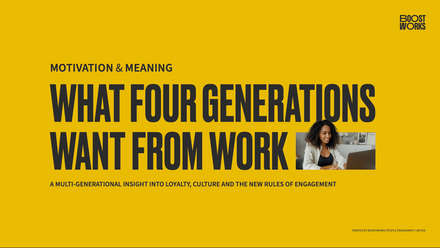4 ways to ensure social wellbeing is sustainable for the long term

Social wellbeing is a key component of our overall health and wellbeing and considering mental health issues are an increasingly significant factor in sickness absence rates (58 per cent of businesses cite increased mental health sick days in 2018)², employers should not ignore this if they are to improve employee wellbeing and boost productivity.
What can an employer do to improve employee social wellbeing?
Acknowledgment – first and foremost, it is important that an employer recognises the importance of an employee’s social wellbeing. If this isn’t fully appreciated, the likelihood any attempts to improve this won’t have the necessary conviction to be effective.
Bringing employees together – employers should make time to ensure employees have the opportunity to come together and interact with each other. This can be as simple as team meetings or organised social events. This sense of belonging can help stave off feelings of isolation and subsequent lack of motivation. They also serve as an opportunity to reinforce the company’s core values to their workforce.
Community – with our busy day to day lives, it is easy to become disconnected with our wider community. By encouraging employees to volunteer to help in their community, it is likely they will have improved social wellbeing and also take pride in the company they work for. Employer can encourage this by for example, organising fundraising events for a local charity or giving employees time off to carry out volunteer work in the community.
Provide a platform for employees to be heard – this is particularly important to larger employers, where employees may find it difficult communicating their queries or concerns. Providing a social platform, such as an in-house employee forum, can enable employees from all areas of the business to communicate with each other and help each other out. This can help bring employees closer together and can be efficient for employers as colleagues can assist with issues rather than this responsibility lying solely with, for example, the HR manager, who may not have the same experience to fully empathise/provide the most relevant advice.
Initiative options
These are just a handful of options an employer can choose to help improve employee social wellbeing. There are many simple, cost effective initiatives an employer can implement in this area. However, as mentioned above, the success of these is largely down to how serious the employer takes their employees wellbeing and the impact this has on their effectiveness in the workplace.
As with all employer initiatives, it also important that there is a clear and effective communication strategy in place to ensure there is maximum employee engagement. Regular updates, presentations and mentions at team meetings can all ensure the message is received by the workforce.
This article is provided by Mattioli Woods.
If you'd like to further develop your knowledge about employee wellbeing, a day at the Employee Wellbeing Congress on 20 June in London, is the essential event for you.
References
2. CIPD – Health & Wellbeing at Work. April 2019







